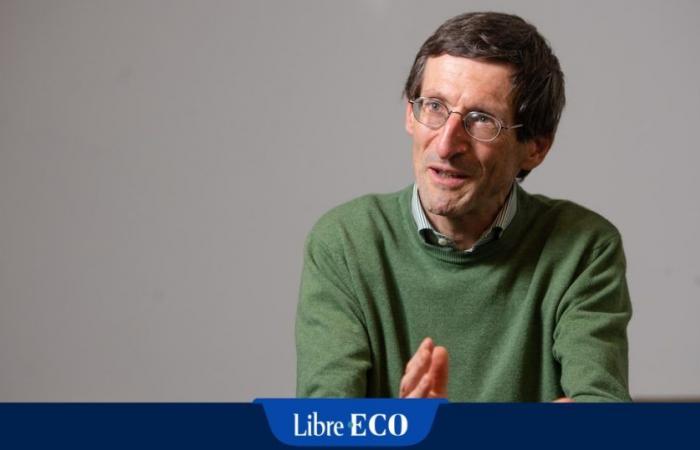
On LN24 and LN Radio, Etienne de Callataÿ, economist and co-founder of Orcadia Asset Management, was the guest of “Café sansfilter” this Monday, June 17.
The consultations of the presidents of the Engagés and the MR begin this Monday in order to reach governments in the Wallonia-Brussels Federation and the Walloon region at the end of June-beginning of July.
Etienne de Callataÿ sees the shift towards center-right governments positively: “I see something positive in it compared to what was feared at the European level and at the Belgian level. On the French-speaking side, this shift to the right is quite astonishing even if, at the European level, this is the trend of recent decades. The surprise is that Wallonia is participating in this shift.”
The economist has, on numerous occasions, warned of the worrying budgetary situation in Wallonia and the Wallonia-Brussels Federation. According to him, the priority for the next five years will be “the environmental issue, despite Ecolo’s poor score. Each party has taken up, or mishandled, this question. I think we can’t make an exclusive bet on technology.” Another challenge will be, according to Etienne de Callataÿ, to restore confidence in political action and in social bonds.
The Engagés want the end of the status of statutory civil servant: “These appointments make the civil service less effective”
This Monday morning, employers and unions will meet Walloon negotiators. A question arises: is there a great risk that the social fabric will deteriorate? Etienne de Callataÿ responds that there is “a great risk of explicit opposition from the unions. There is also a risk of implicit opposition from administration leaders. We have a largely politicized administration and we could fear that it will block future government reforms. It is perfectly legitimate at the union level to protest, it is not only the vote once every five years that allows a divergent opinion to be expressed. However, this alternation is necessary. What we should hope for is that, in many areas, those who do not like the policies that are going to be implemented see them as life-size experiments.”
Faced with the current budgetary crisis, Wallonia will have to make savings. What are the sectors in which it could do so? The co-founder of Orcadia Asset Management aims for administrative simplification and structures: “If we decide to introduce a subsidy, behind it we need people to write the text, we need press releases, explain to citizens, control. So every time we’re going to do micro-measures, we’re going to have to hire people to control all of that. Each time there are administrative burdens”
“We will certainly have to increase taxes”
The desire of Walloon trainers is to reduce ministerial cabinets as much as possible, this means more trust between cabinets, political staff and the administration. Etienne de Callataÿ is a little fearful: “There could be a blockage from senior administration officials. What is needed is a process which ensures that the civil servant is the relay of the political positions taken by a government which has the majority of the electorate on its side, otherwise the civil servant must be removed. The appointment of civil servants is something that must be questioned. It is much more important to question the appointment of civil servants and teachers than to reduce the size of cabinets if you want to improve the effectiveness of all public policies in the French-speaking Belgian landscape.”





